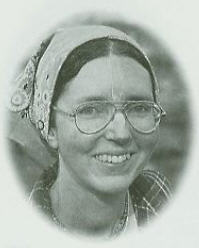
Hare Krsna Devi Dasi
WE CAN LEARN A LOT about history and the people writing it by keeping tuned to what is not being said. Applying this principle, we can see why Westerners have such trouble understanding the significance of cow protection especially protection of the bull or ox. Because of what is routinely suppressed or overlooked in history books, it's hard for people to understand when Prabhupada says,
According to smrti [scriptural] regulation, the cow is the mother and the bull the father of the human being. The cow is the mother because just as one sucks the breast of one's mother, human society takes cow's milk. Similarly, the bull is the father of human society because the father earns for the children just as the bull tills the ground to produce food grains. Human society will kill its spirit of life by killing the father and the mother.
(Srimad-Bhagavatam 3.2.29, purport)
Because of a silence in contemporary history books, we cannot understand that the bull is our father. To us it seems a sentimental concept. Yet most major civilizations around the world owe a great debt to the bull or ox (neutered bull). We read about land being cleared, fields being planted, roads, castles, temples, cathedrals, and aqueducts being built. But somehow our history books (and films) are silent about the "engine" that was indispensable for all this growth of civilization.
It was Father Bull. He cleared the land, planted the fields, ground the grain, hauled the stone and timber, and moved the dirt.
Throughout the ages, there has been a worldwide appreciation for the working ox. The Chinese named a year after him and declared it a sin to eat his flesh as did the ancient Egyptians (for certain breeds). The people of India revered both the bull and the cow and set rules to protect their well-being. Europeans also respected the work of the ox.
Americans in the days of the pioneers esteemed the work of the ox, and cited Biblical references to his value. An 1853 Encyclopedia of Religious Knowledge states under its entry for "Ox":
The rural economy of the Israelites led them to value the ox as by far the most important of domestic animals, from the consideration of his great use in all the operations of farming. In the patriarchal ages, the ox constituted no inconsiderable portion of their wealth. … Men of every age and country have been much indebted to the labors of this animal. For many ages the hopes of oriental husbandmen depended entirely on their labors. This was so much the case in the time of Solomon that he observed, in one of his proverbs, "Where no oxen are, the crib is clean," or rather empty; "but much increase is by the strength of the ox."
Though such people were usually meat-eaters, that they could see the ox maintaining their daily life would have made it easier to convince them of the sin of killing their father the ox which is precisely what Lord Caitanya was able to do in speaking with the Muslim Kazi of Navadvipa in sixteenth-century India.
On the contrary, how difficult it is to explain to modern Westerners the sin of cow-killing, when the ox has been intentionally or unintentionally eliminated from the history books. You may read a whole article about Colonial America, for example, and never see one mention of the ox without whom the whole economy would have collapsed. I've noticed many times that when a modern artist needs to include an ox in an illustration, the commonest solution is just to draw him from the back wagon, big ear, big horn that's all. Father Bull is so far removed from people's experience that they don't even know what he looks like.
But Prabhupada's followers are changing that. We farm with oxen, and we take oxen on international walking tours in our Padayatra festivals. Devotee ox-drivers on Padayatra often report, "People come up and ask us what kind of animals they are." Because of curiosity to come up and pet Father Bull, people get a chance to take some prasadam (sanctified food) and hear the chanting of the Hare Krsna mantra. Just as ignorance of Father Bull's importance condemned them to sinful meat-eating, becoming attracted by him sets them on the road to spiritual life.
Hare Krsna Devi Dasi, an ISKCON devotee since 1978, is co-editor of the newsletter Hare Krsna Rural Life.
